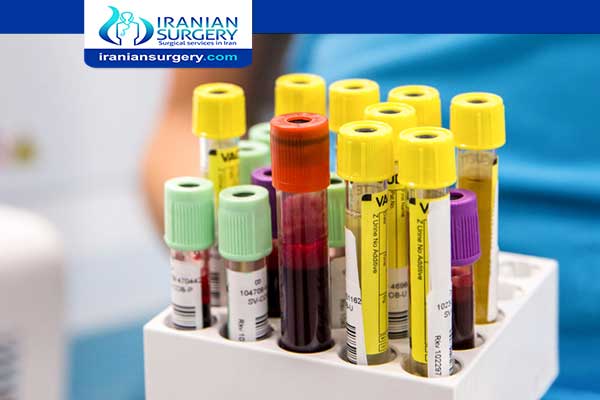Blood Tests
Blood tests have a wide range of uses and are one of the most common types of medical test.
For example, a blood test can be used to:
- assess your general state of health
- check if you have an infection
- see how well certain organs, such as the liver and kidneys, are working
- screen for certain genetic conditions
Most blood tests only take a few minutes to complete and are carried out at your GP surgery or local hospital by a doctor, nurse or phlebotomist (a specialist in taking blood samples).
Blood tests have a wide range of uses and are one of the most common types of medical test.
For example, a blood test can be used to:
- assess your general state of health
- check if you have an infection
- see how well certain organs, such as the liver and kidneys, are working
- screen for certain genetic conditions
Most blood tests only take a few minutes to complete and are carried out at your GP surgery or local hospital by a doctor, nurse or phlebotomist (a specialist in taking blood samples).
How often should I get routine blood work?
Your doctor will typically recommend that you get routine blood work at least once a year, around the same time as your yearly physical.
But this is the bare minimum. There are several major reasons you may want to get blood tests more often than that:
- You’re experiencing unusual, persistent symptoms.These could include anything from fatigue to abnormal weight gain to new pain.
- You want to optimize your health.Knowing levels of various blood components, such as HDL and LDL cholesterol, can allow you to tweak your diet or fitness plan to minimize unhealthy habits (that you may not even realize are unhealthy). This can also maximize the nutrients you put in your body and more.
- You want to reduce your risk of disease or complications.Regular blood tests can catch the warning signs of almost any disease early. Many heart, lung, and kidney conditions can be diagnosed using blood tests.
Where would I have a blood test?
This may be done in hospital or by your GP or practice nurse. If you’re having an NHS health check, your blood test is usually a quick finger prick test that looks at the blood’s glucose and cholesterol levels. If the results are higher than recommended, you may be asked to go to your hospital for a full blood test.
Do blood tests hurt?
It’s normal to be nervous about doing a blood test it’s human nature not to like pricking yourself with a needle or looking at your own blood! But the process is very straightforward and while it might feel a little uncomfortable it won’t be painful.
Venous blood test
With a venous blood test, all you’re likely to feel is a little pinch when the needle goes in, the blood being drawn out won’t hurt at all. You might have a small bruise where the needle went in.
Finger-prick blood test
As the name suggests, all you’ll feel is a small prick on your finger. The area the lancet went in might be a little tender afterwards.
What are some routine tests and others I should ask about?
Some of the most common routine tests are:
- complete blood count (CBC)
- chemistry (basic metabolic) panel
- thyroid panel
- nutrient tests for levels of vital nutrients, such as iron or B vitamins
Some other tests that you may want include:
- enzyme markers if you’re at risk for cancer or other conditions like liver cirrhosis, stroke, or celiac disease
- sexually transmitted disease (STD) tests if you have multiple sexual partners or a new partner
Why do some blood tests require fasting?
Everything you eat and drink contains vitamins, proteins, and other nutrients that can cause the related levels in your blood to temporarily spike or drop.
Fasting for 8–12 hours helps ensure that blood test results are free from these variables, making your test results as accurate as possible.
Some common tests that may require fasting include:
- cholesterol tests
- blood sugar tests
- liver function tests
- kidney function tests
- basic metabolic panel
- glucose tests
How long does it take to get results?
Results may take anywhere from a few hours to a few days to become available. Here’s an overview of how long some common tests may take:
- complete blood count (CBC): 24 hours
- basic metabolic panel: 24 hours
- complete metabolic panel: 24–72 hours
- lipid panel: 24 hours.
What happens to my blood after the test?
Usually, the blood bottles contain small amounts of a chemical to stop your blood clotting in the tube, so it can be measured accurately in the lab. Each bottle is labelled with your name, date of birth and hospital number, when the blood was taken, and has a different coloured top according to the type of test. Then they are taken to be analysed.
Do I need to do anything to prepare for a blood test?
Occasionally you may need to fast (not eat) before your blood test, but your doctor will let you know if this is required. Unless you have been told not to, have a drink of water before your test. If you’re dehydrated, it can be more difficult to find your vein.

Blood test results
After the blood sample has been taken, it will be put into a bottle and labelled with your name and details. It will then be sent to a laboratory where it will be examined under a microscope or tested with chemicals, depending on what's being checked.
The results are sent back to the hospital or to your GP. Some test results will be ready the same day or a few days later, although others may not be available for a few weeks. You'll be told when your results will be ready and how you'll be given them.
Sometimes, receiving results can be stressful and upsetting. If you're worried about the outcome of a test, you may choose to take a trusted friend or relative with you. For some tests, such as HIV, you will be offered specialist counselling to help you deal with your results.
10 common questions about blood tests
[kkstarratings]




